Vascular Specialists Advance Patient Care with Innovative Treatments
Vascular surgeons treat diseases of the arteries and veins other than those of the heart and brain. In the last few years, McLeod Vascular specialists recorded several first-in-state distinctions, using groundbreaking techniques to treat problems from varicose veins to dangerous blockages in leg arteries.
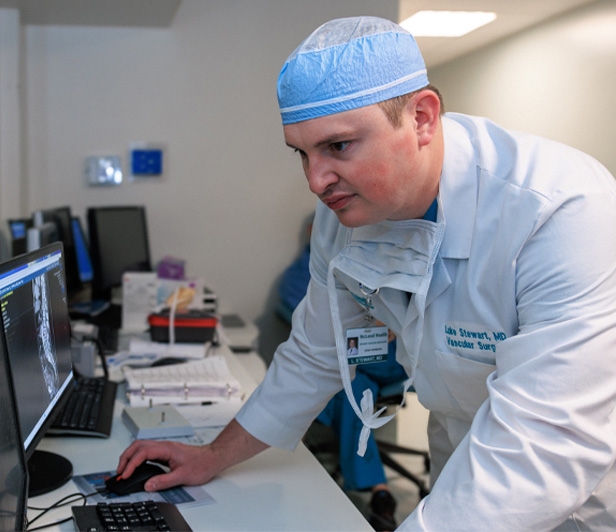
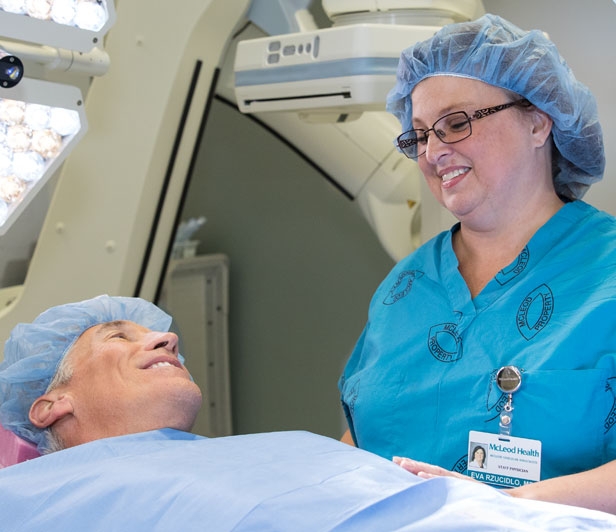
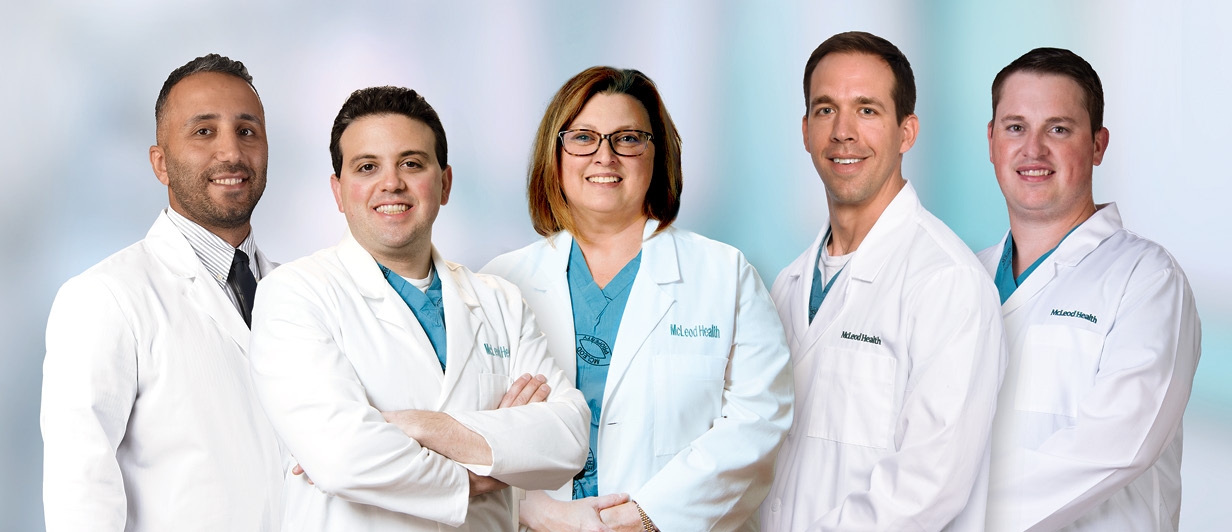
-

Don’t Delay Treating Vascular Disease. Call Today for a Vascular Specialist Appointment
McLeod Regional Medical Center (Florence) and McLeod Health Seacoast (North Myrtle Beach), offer a range of services with McLeod Vascular Associates. Vascular Clinics for diagnosis and treatment planning are also available in Hartsville and Myrtle Beach. To schedule an appointment, call McLeod Vascular Associates at 1 (888) 777-7043.
-
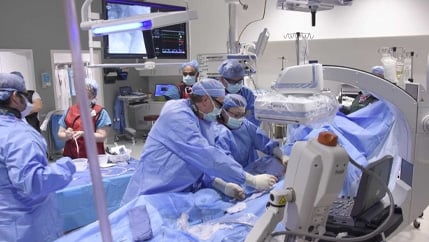
TCAR – A Big Name in Stroke Care
Ischemic strokes account for 80 to 90% of strokes. An estimated 20 to 30% of those are caused by blockages in the carotid arteries, which carry blood to the brain. If left untreated these blockages can lead to a stroke. McLeod has a stroke treatment to clear plaque in the arteries called Transcarotid Artery Revascularization or TCAR. TCAR is performed through a small incision at the neckline. It implements a system to protect any plaque that may break loose during the procedure from reaching the brain and potentially causing a stroke. A stent is then placed that holds the carotid artery open to allow normal blood flow back to the brain and reducing the patient’s risk for stroke.
-
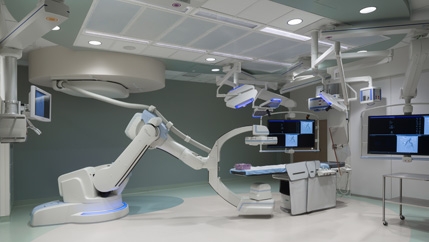
Peripheral Arterial Disease Needs Expertise
Peripheral arterial disease (PAD) is a clogged or narrowed buildup of plaque inside the arteries in the legs. This causes a decrease of blood flow to the legs, which can result in pain, and if left untreated could lead to amputation. Twelve to twenty percent of Americans older than 65 suffer from PAD, but only one-third experience any symptoms.
READ MORESymptoms can include: pain when walking that subsides at rest; leg cramps; pain at rest; numbness and skin discoloration and sores or other symptoms of skin breakdown. Many people live with the pain of PAD, assuming that it is a normal part of aging, rather than discuss it with their physician. McLeod Vascular Associates is able to precisely judge the severity of the patient’s disease and provide the best treatment plan.
Close -
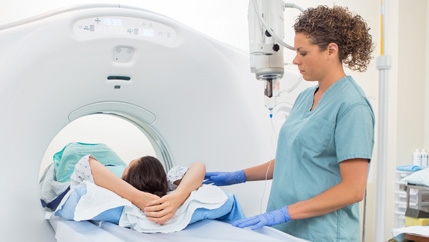
Detecting Aortic Disease with Technology
The aorta is the major blood vessel that supplies blood to the body. It is about the thickness of a garden hose, and runs from the heart through the center of the chest and abdomen. When there is an enlarged area in the lower part of the aorta it is an abdominal aortic aneurysm.
READ MOREBecause the aorta is the body’s main supplier of blood, if an abdominal aortic aneurysm were to rupture it can cause life-threatening bleeding. Abdominal aortic aneurysms often grow slowly and without symptoms, making them difficult to detect. Most aneurysms are discovered during a normal exam and not all will rupture. Some start small and stay small. Others expand over a period of time, while some expand quickly.
At McLeod we have access to the most up-to-date radiology imaging allowing quick and accurate evaluation of very complex diseases including: aortic aneurysms, blockages, dissections and stenosis.
Our vascular surgeons, along with our advanced operation room team of nurses, technicians and anesthesia colleagues are trained to treat these diseases with the most minimally invasive modalities.
Close -
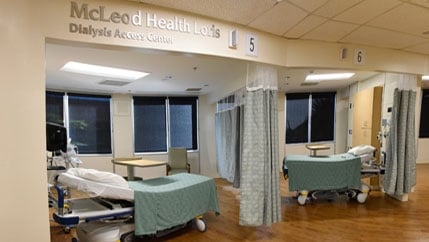
Dialysis Access Center
The Dialysis Access Center at McLeod Health Loris, led by vascular surgeon, Dr. David Bjerken, is the only center in the region specializing in immediate dialysis access repair, creation of new dialysis access and preservation of existing access. Partnering with area Nephrologists, every dialysis patient is offered the most efficient assistance possible. For more information, please call (843) 716-7140.
To learn about Dialysis Access Procedures, click here.
To see our inspiring patient story, click here.
-
McLEOD REGIONAL MEDICAL CENTER FLORENCE
843-777-2000 -
McLEOD DARLINGTON
843-777-1100 -
McLEOD DILLON
843-774-4111 -
McLEOD LORIS
843-716-7000 -
McLEOD SEACOAST
843-390-8100 -
McLEOD CHERAW
843-537-7881 -
McLEOD CLARENDON
803-433-3000



-
McLEOD REGIONAL MEDICAL CENTER FLORENCE
843-777-2000 -
McLEOD DARLINGTON
843-777-1100 -
McLEOD DILLON
843-774-4111 -
McLEOD LORIS
843-716-7000 -
McLEOD SEACOAST
843-390-8100 -
McLEOD CHERAW
843-537-7881 -
McLEOD CLARENDON
803-433-3000
 Find a Doctor
Find a Doctor  Locations
Locations  Services
Services